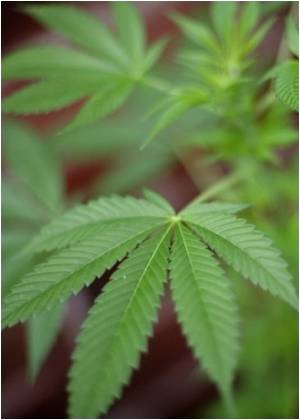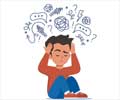Scientists for the first time have identified a link between the quantity of cannabinoid receptors and post-traumatic stress disorder.

"There's not a single pharmacological treatment out there that has been developed specifically for PTSD," says Dr. Neumeister. "That's a problem. There's a consensus among clinicians that existing pharmaceutical treatments such as antidepressant simple do not work. In fact, we know very well that people with PTSD who use marijuana—a potent cannabinoid—often experience more relief from their symptoms than they do from antidepressants and other psychiatric medications. Clearly, there's a very urgent need to develop novel evidence-based treatments for PTSD."
The study divided 60 participants into three groups: participants with PTSD; participants with a history of trauma but no PTSD; and participants with no history of trauma or PTSD. Participants in all three groups received a harmless radioactive tracer that illuminates CB1 receptors when exposed to positron emissions tomography (PET scans). Results showed that participants with PTSD, especially women, had more CB1 receptors in brain regions associated with fear and anxiety than volunteers without PTSD. The PTSD group also had lower levels of the neurotransmitter anandamide, an endocannabinoid that binds to CB1. If anandamide levels are too low, Dr. Neumeister explains, the brain compensates by increasing the number of CB1 receptors. "This helps the brain utilize the remaining endocannabinoids," he says.
Much is still unknown about the effects of anandamide in humans but in rats the chemical has been shown to impair memory. "What is PTSD? It's an illness where people cannot forget what they have experienced," Dr. Neumeister says. "Our findings offer a possible biological explanation for this phenomenon."
Current diagnostics for PTSD rely on subjective measures and patient recall, making it difficult to accurately diagnose the condition or discern its symptoms from those of depression and anxiety. Biological markers of PTSD, such as tests for CB1 receptors and anandamide levels, could dramatically improve diagnosis and treatment for trauma victims.
Among the 1.7 million men and women who have served in the wars in Iraq and Afghanistan, an estimated 20% have PTSD. But PTSD is not limited to soldiers. Trauma from sexual abuse, domestic violence, car accidents, natural disaster, violent assault or even a life-threatening medical diagnosis can lead to PTSD. The condition affects nearly 8 million Americans annually.
Advertisement















